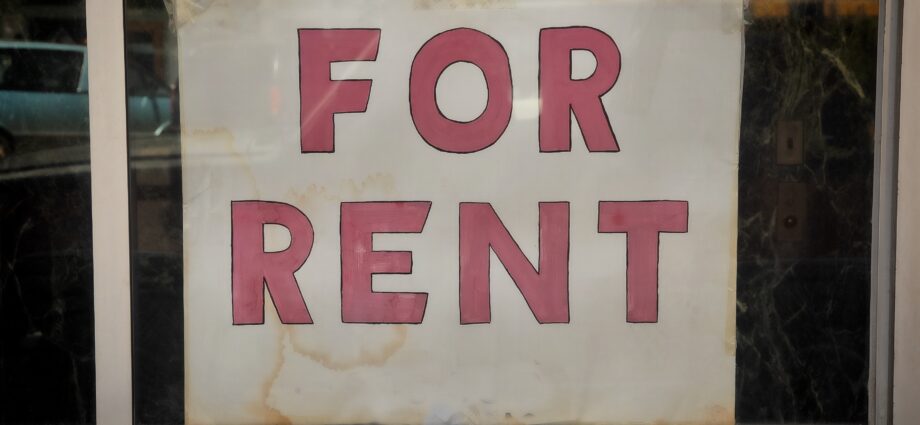
Brian Doucet, University of Waterloo and Laura Pin, Wilfrid Laurier University
April 22, 2023
Amid all the discussions about constructing new housing, existing affordable housing is being overlooked. A recent study found that 322,000 affordable homes were lost across Canada between 2011 and 2016 compared to the construction of only 60,000 new houses for those in greatest need of housing.
In cities like Hamilton, Ont., the situation is even more dire: for every new unit of affordable housing built, 29 are lost. While most of these homes still exist, they are now much more expensive. And that’s largely because of renovictions.
Renovictions occur when landlords evict tenants, renovate the vacated units, then lease the units at much higher rents. The lack of rent control on vacant units creates a financial incentive for landlords to evict long-term tenants, many of whom pay below market rates.
To be clear, when we speak about landlords in this context, we are primarily referring to large financialized landlords that own hundreds of buildings and thousands of units and whose business model is based on profit by dispossession — not just “mom and pop” landlords.
In Ontario, provincial rules around renovictions are weak. Doug Ford’s government recently introduced Bill 97, the Helping Homeowners, Protecting Tenants Act. Despite its name, the bill does not constitute a significant improvement for renters. The onus still falls on tenants to exercise their legal right to return to the residence and find temporary accommodation in the meantime.
Despite spending billions on housing, the federal government also isn’t making significant inroads to protect tenants or preserve existing affordable housing. The National Housing Strategy has produced little affordable housing for people in need.
This means it’s up to cities to use whatever powers they have to make a difference.
Anti-renoviction bylaws

On April 20, Hamilton’s Emergency and Community Services Committee will debate whether to pursue new bylaws to crack down on renovictions.
As housing researchers, we believe tough anti-renoviction bylaws are one of the best single measures a city can implement to make a dramatic and immediate impact on housing affordability.
There is precedent for this. New Westminster, B.C., passed an anti-renoviction bylaw in 2019 that heavily fined landlords who did not allow tenants to return after renovations were completed.
The result: New Westminster virtually eliminated renovictions.
The bylaw withstood two court challenges. It was only repealed after the British Columbia government enacted similar legislation province-wide, albeit a more watered-down version of New Westminster’s bylaw.
Hamilton has the opportunity to be a national leader in housing affordability by ending an unjust practice that destroys the lives of tenants and erodes the city’s affordable housing stock.
The census doesn’t track renovictions; for some planners, politicians and policymakers, this lack of official data means there isn’t a problem.
At the April 20 committee meeting, councillors were poised to hear many first-hand accounts of renovictions from tenants. Their lived experiences are the data. But our research shows that this is only the tip of the iceberg.
Hamilton consultant report
City staff have been looking into whether Hamilton can legally enact a New Westminster-style bylaw. Their consultant’s report concluded it was not within the city’s powers. However, the report missed two key components.
First, the consultant’s report states that, in light of the provincial protections from renovictions in Ontario, a New Westminster-style bylaw would be irrelevant. This is not accurate. There are significant differences between the New Westminster bylaw and current B.C. legislation and the Ontario guidelines under the Residential Tenancies Act (RTA).
While the RTA has some protections against renovictions, they are inadequate; very few tenants who leave their units due to renovations return, and even fewer return at the same rent.
What is different about New Westminster’s bylaw? Unlike Ontario, in New Westminster, the onus was shifted to the landlord to demonstrate that tenant occupancy could not continue during renovations, and, importantly, to provide alternate accommodations while the renovation work was taking place.
Second, Hamilton’s report argues that B.C. municipalities have more authority as a result of their community charters to enact this type of bylaw. This is contrary to the legal opinion of ACORN Hamilton, a tenant advocacy and organizing group, which suggests such a bylaw would be in the purview of an Ontario municipality.
Moreover, prior to the court challenges in B.C., which upheld the New Westminster bylaw, it was not clear that B.C. municipalities had this authority either.
Walking the talk
Hamilton’s city council understands the urgency of the housing crisis. The city’s own data demonstrates a dramatic increase in N13 applications (notice to end tenancy because a landlord wants to demolish, repair or convert a rental unit) and subsequent renovictions.
Earlier this month, Hamilton declared a state of emergency over homelessness.
Our question to Hamilton’s civic leaders is this: with more than 15,000 units rented at less than $750 a month lost over the past decade, where do you think many people who are renovicted end up?
Creating a tough anti-renoviction bylaw would be a big step to turn nice words into bold action.
Cities can’t just talk. They need to take immediate action. Neither the province nor the federal government have any meaningful legislation to help renters. Evidence from elsewhere suggests tough anti-renoviction bylaws have a dramatic impact on affordability. City councils must do everything they can to protect tenants and affordable housing.
Subscribe to our newsletter.
Brian Doucet, Canada Research Chair in Urban Change and Social Inclusion, University of Waterloo and Laura Pin, Assistant Professor, Faculty of Arts, Wilfrid Laurier University
This article is republished from The Conversation under a Creative Commons license. Read the original article.


